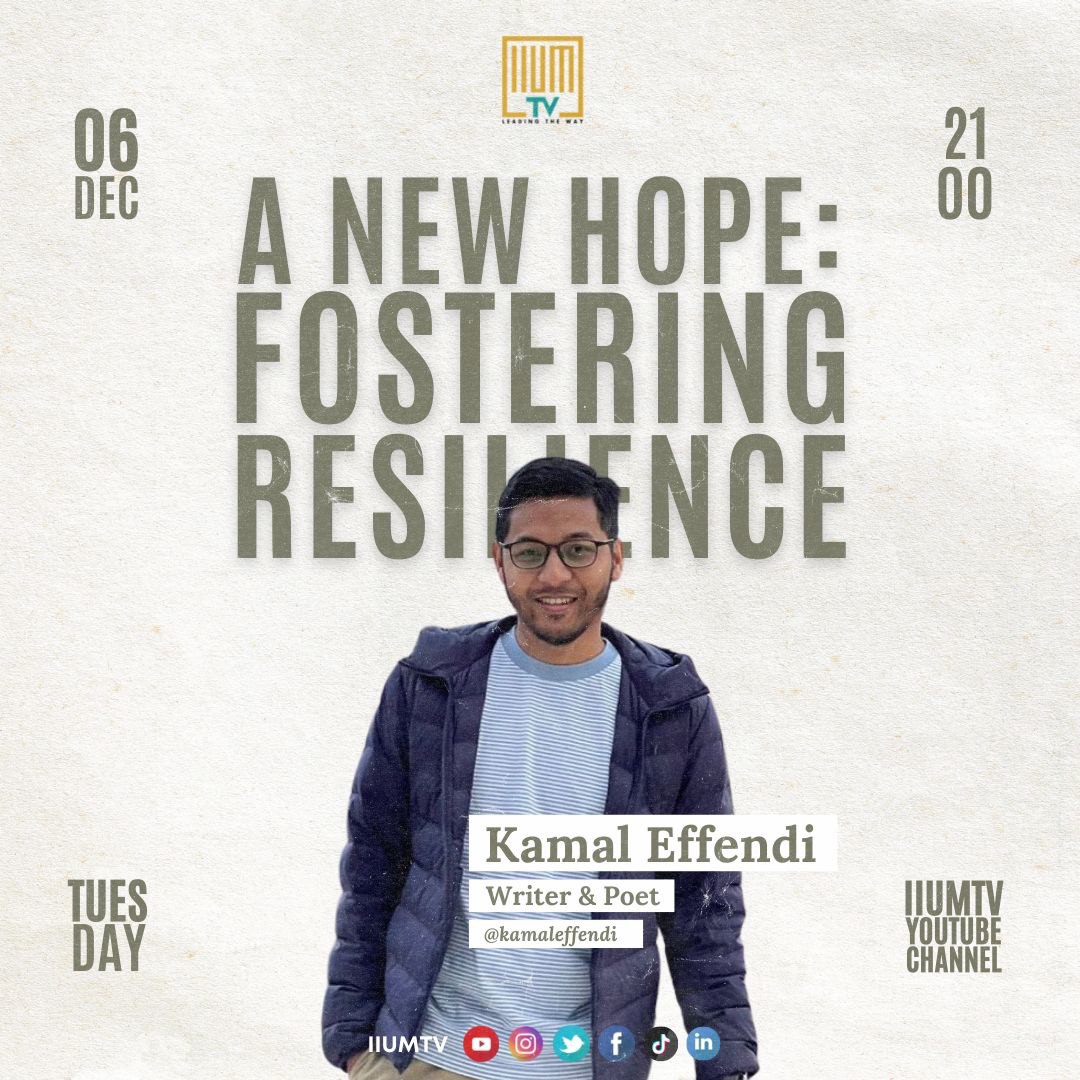By Siti Solehah
GOMBAK, 11 December 2022: Every cloud has a silver lining. In order to uncover it, reflection, perseverance, and faith must all operate together. The loss and failures encountered are the bittersweet experiences necessary to feel at ease later.
This viewpoint was reflected in the The Art of Life: Embrace the Possibility IIUMTV series entitled A New Hope: Fostering Resilience.
The 48-minute live session which was held on Tuesday (6 December) featured Ahmad Kamal Effendi Kamarudin, a writer, mental health aid, and master’s student at IIUM.
Speaking from experience as someone who has gone through many rough patches in life, Kamal shared that the concepts of success and failure come in duality, that life is not a bed of roses.
He said, œIts not enough by being constantly positive but you have to know that in order to be positive, the underlying river of negativity plays a part too.
The writer also underscored that it is unjust to compare his difficulties to those faced by others by insinuating that he had faced more difficulties than others, because evaluating hardship is contextual.
He added that, as someone who had undergone two major losses in his life, he was hesitant to claim that having lost someone would be the most daunting phase of his life; even so, he asserted that losing imaan and faith is inarguably more blood-curdling.
œI cannot imagine putting myself in a situation where I miss my prayers without feeling I did something wrong, he stressed.
In accordance to confronting grief, Kamal mentioned that it must not be avoided as this would be detrimental to one’s mental health.
He added that grief is not solely tied to death. People can grieve over a friendship or an exam, and he referred to grieving as the bottom line for one’s stable mental wellbeing since ignoring grief does not necessarily mean one can heal from it.
While addressing the pertinence of grieving, he posited that he would not use the words “move on” to describe life after a loss, but instead he would say, “moving forward.”
œWhen you lose someone, you carry on the memory of the person in your life and it just gets better. In a way, through time, you will heal properly, he described.
Reminiscing about his early days of grieving, Kamal said he thought he would be healed in a few weeks or a month, but that was all pure fantasy because it did not work out that way. The mental health aid also stated that while having a goal for when to stop grieving is needed, it is also noteworthy to acknowledge that the healing process may take months or years.
The most crucial bit he picked up while grieving was the need to rely and have faith solely in Allah. Individuals’ feelings of tranquillity and serenity when talking to Allah are most ascribable to their faith, because when they believe and understand the wisdom behind all of the tests, they know they can get through the trials.
In contrast to the popular notion of false positivity, which means one easily masks him or herself in optimism and keeps all problems to oneself without considering the implications, Kamal underlined the importance of acknowledging the struggles and hurdles in facing grief.
œYou simply cannot expect yourself to be a better person just like that, by thinking that being positive is simply by being happy and by taking in everything without thinking that there is a price to pay for you to be happy at the end of it, he said.
Making reference to the admirable stories of the Prophet S.A.W and his companions who went through so many trials and tribulations in pursuit of the highest level of faith.
Kamal noted the same principle applies to us, ordinary human beings. “We should anticipate that there will be times when things will not be in our favour,” he added.
Kamal concluded his talk by asserting that prioritising mental health while also reflecting on our hardship is pivotal since this will permit us to find out that when it is too much, we need to decide whether we should let go or hold on.
For those interested to watch the show, you may watch it here.***
